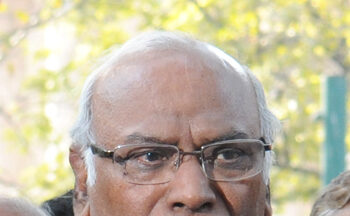Larsen & Toubro’s Chairman and Managing Director, S.N. Subrahmanyan, has ignited a fresh debate by attributing labour shortages in the construction sector to government welfare schemes. Speaking at the Confederation of Indian Industry’s Mystic South Global Linkages Summit 2025 in Chennai on Tuesday, he observed that many workers are unwilling to relocate for employment, preferring the comfort of their hometowns. He suggested that initiatives such as the Mahatma Gandhi National Rural Employment Guarantee Act , direct benefit transfers, and Jan Dhan accounts might be contributing to this reluctance.
Subrahmanyan highlighted a unique challenge facing India: while many countries grapple with issues related to migration, India contends with a workforce hesitant to move for work. He linked this phenomenon to the availability of welfare schemes and financial assistance, which provide a safety net, reducing the necessity for workers to seek employment away from their native places.
This perspective has sparked a multifaceted discussion. Some industry leaders and economists argue that welfare schemes are essential for providing basic financial security to the underprivileged, ensuring a minimum standard of living, and empowering individuals to make choices that best suit their circumstances. They contend that these programs are designed to prevent exploitation and offer a safety net, especially in rural areas where job opportunities can be scarce.
Conversely, others in the business community share Subrahmanyan’s concerns, emphasizing the difficulties in mobilizing labour for large-scale projects. They point out that the reluctance to relocate can lead to project delays and increased costs, potentially hindering economic growth and infrastructure development. The construction industry, in particular, relies heavily on a mobile workforce to meet the demands of projects spread across various regions.
This debate comes on the heels of another controversy involving Subrahmanyan. Last month, he faced criticism for advocating a 90-hour workweek, suggesting that such dedication was necessary for success. His remarks included questioning the value of time spent at home, which many perceived as dismissive of work-life balance. The comments led to widespread backlash, with discussions focusing on the importance of maintaining a healthy balance between professional commitments and personal life.




 Trump’s Birthright Citizenship Order Sparks Legal Battles
Trump’s Birthright Citizenship Order Sparks Legal Battles 